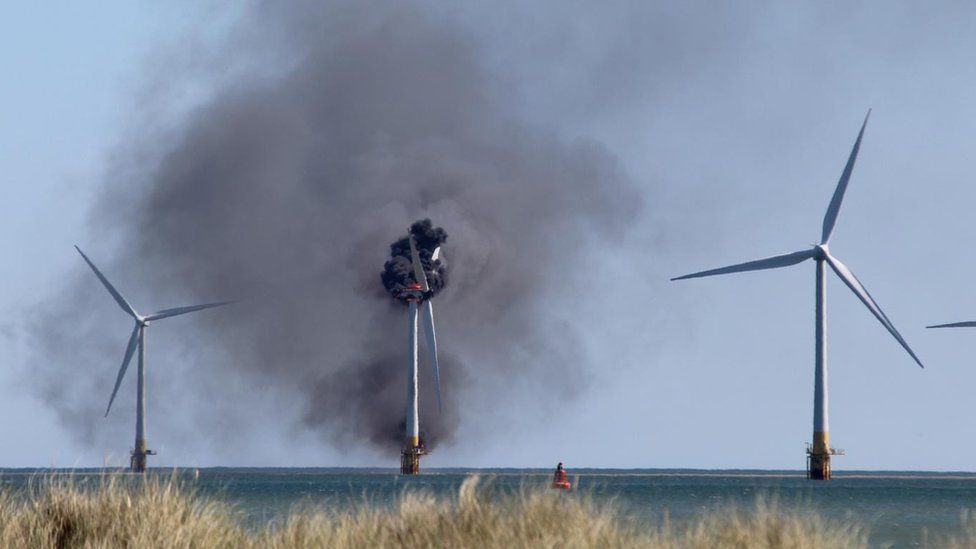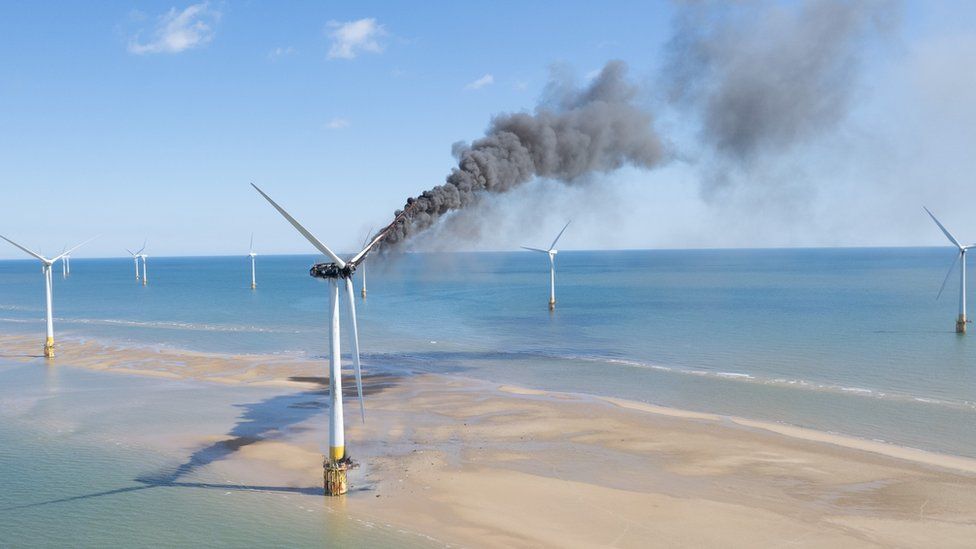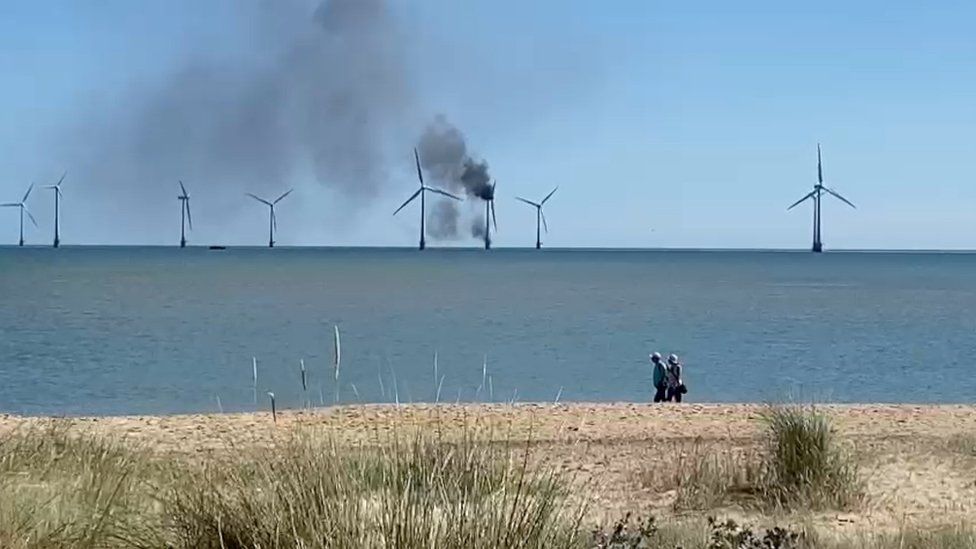Occidental Petroleum to Acquire BC Carbon Capture Technology Supplier for $1.1 Billion
Jordan Vonderhaar/Bloomberg via Getty Images
Oil and gas producer Occidental Petroleum (OXY) announced on Tuesday its plans to acquire Canadian carbon capture technology supplier Carbon Engineering Ltd. for $1.1 billion.1
KEY TAKEAWAYS
- Occidental Petroleum plans to purchase direct air capture technology firm Carbon Engineering Ltd. for $1.1 billion.
- Spurred by the government's direct air capture incentives, Occidental plans to set up about 100 plants that will strip carbon dioxide from the air and bury it in the ground or use it for manufacturing.
- By decreasing costs, the acquisition will boost Occidental's profitability as well as provide new revenue streams through technology licensing and royalties.
Occidental aims to build about 100 direct air capture (DAC) plants that can strip carbon dioxide from the air and use it to manufacture products such as concrete or aviation fuel. The CO2 can also be buried underground.2 The two companies have been working on DAC technologies since 2019. The buyout will enable Occidental to develop multiple carbon-capture sites that can provide climate change solutions.1
Carbon Engineering's equity will be purchased for cash in three roughly equal annual payments, with the first due when the deal is finalized. The transaction is expected to close before the end of the year, subject to court reviews and regulatory approvals in the U.S. and Canada.1
Accelerating the deployment of DAC as a large-scale, cost-effective, global carbon removal system will enhance Occidental's profitability, the company said. Technology licensing and royalties will add new revenue streams as well.1
The efforts come as part of the Biden administration's efforts to use DAC to neutralize greenhouse gas emissions by 2050. To scale up DAC technology, the U.S. Department of Energy announced last week $1 billion in federal grants for projects in Texas and Louisiana that can potentially remove more than 2 million metric tons of carbon emissions annually.3
Some of that money will be funneled toward Occidental's West Texas-based Stratos project.3 Using Carbon Engineering's technology, Stratos is set to be the largest DAC plant in the world by 2025.4
As climate-change catastrophes unfold across the globe, the importance of removing carbon from the atmosphere is increasing. Scientists estimate billions of tons of carbon have to be removed from the environment to limit global warming to 1.5 degrees Celsius.3
B.C.-based Carbon Engineering being bought by Occidental for US$1.1 billion
CALGARY — A Canadian company that is pioneering the use of direct air capture technology to remove carbon dioxide directly from the atmosphere has been acquired by U.S. oil company Occidental Petroleum.
The US$1.1-billion deal will see Squamish, B.C.-based Carbon Engineering Ltd. become a wholly owned subsidiary of Oxy Low Carbon Ventures, an Occidental company that is investing in a range of new emissions-reduction technologies.
Carbon Engineering — which was founded in Calgary by Harvard professor David Keith and currently has 150 employees— has already been working for years with Oxy subsidiary 1PointFive, which is aiming to commercialize the large-scale deployment of carbon capture, utilization and sequestration technology.
1PointFive is currently using Carbon Engineering’s technology to construct what it says will be the largest direct air capture project in the world, in Ector County, Texas.
The plant under construction is expected to capture up to 500,000 metric tonnes of carbon dioxide per year with the capacity to scale up to 1 million metric tonnes per year.
Unlike the more common form of carbon capture and storage (CCS) technology — which captures emissions from industrial flue stacks and sequesters them safely deep underground — direct air capture technology removes harmful C02 emissions directly from the air for safe storage underground.
Advocates say direct air capture technology has the potential to not only reduce current greenhouse gas emissions, but also to begin removing the large quantities of CO2 emitted in the past that remain trapped in the earth’s atmosphere.
While the technology is very expensive, increasingly aggressive climate policies by governments around the world are making its deployment more feasible. The U.S. Inflation Reduction Act contains generous subsidies for direct air capture projects, and in Canada, the federal government is currently hammering out details of its promised tax credit for carbon and direct air capture deployment.
1PointFive has stated it believes it can deploy 70 direct air capture facilities worldwide by 2035, under current compliance and market scenarios.
In a statement, Carbon Engineering CEO Daniel Friedmann said the deal with Occidental will dramatically enhance the Canadian company’s ability to continue developing its technology through widespread commercialization.
“It will enable us to accelerate our mission to lead the world in the large-scale removal of carbon dioxide from the air and help advance our shift to a sustainable, net zero society,” Friedmann said.
“We have always believed that global partnerships and cross-industry collaboration would be required to deploy Direct Air Capture infrastructure at scale.”
Friedmann said Carbon Engineering’s headquarters and its employees will remain based at the company’s Innovation Centre in Squamish.
This report by The Canadian Press was first published Aug. 16, 2023.
Amanda Stephenson, The Canadian Press
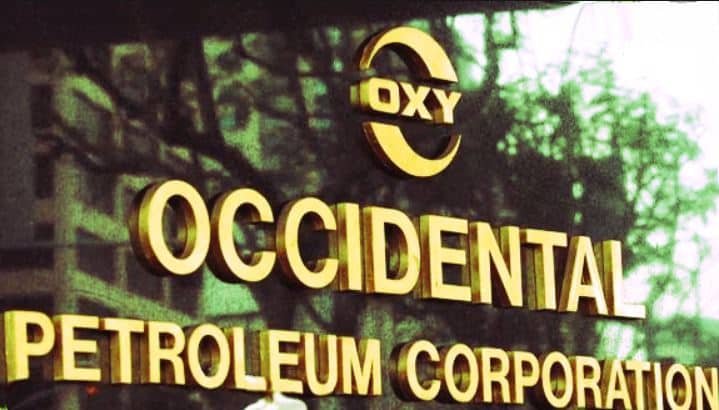
Occidental Petroleum revealed plans to acquire Canadian Direct Air Capture supplier Carbon Engineering through its subsidiary Oxy for $1.1 billion.
The oil major’s Oxy Low Carbon Ventures subsidiary advances technologies and solutions that economically grow the company while reducing emissions.
Carbon Engineering (CE) provides climate solutions focusing on deploying large-scale direct air capture (DAC) technology. It captures carbon directly from the atmosphere and stores it in geologic formations or uses it to make valuable products.
Accelerating DAC Deployment and Technology Breakthroughs
Occidental and CE have been working on DAC technologies for almost five years now. The buyout will allow Occidental to establish multiple direct air capture sites to deliver climate change solutions.
DAC is Occidental’s low-carbon strategy toward its net zero goal. Last year, it signed a net zero oil deal with South Korean refiner SK Trading.
Occidental plans to build about 100 DAC plants to rapidly advance the technology breakthroughs and ramp up deployment. That way the energy giant can help make DAC a cost-effective global carbon removal solution.
Buying out Carbon Engineering is a good opportunity to make that happen while aligning with Occidental’s net-zero strategies. CE’s DAC technology applies standardized and proven processes.
The image shows how CE’s DAC technology works. It uses giant fans powered by solar energy to suck in CO2. The liquid sorbents draw in carbon that will be heated to get pure CO2, which would be injected underground or used in making valuable products.
Carbon Engineering DAC Process
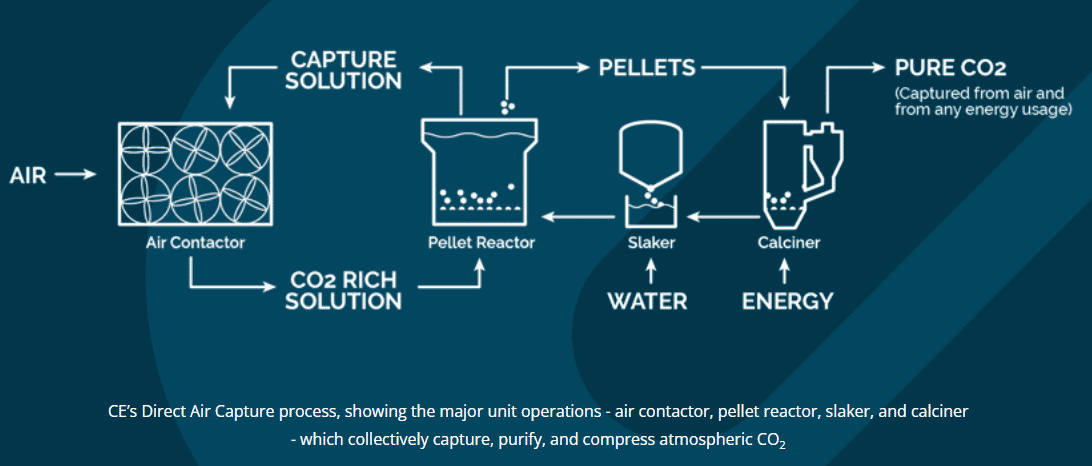
“Together, Occidental and Carbon Engineering can accelerate plans to globally deploy DAC technology at a climate-relevant scale and make DAC the preferred solution for businesses seeking to remove their hard-to-abate emissions.”
Hollub added that it will bring new revenue streams for Occidental, adding to its profitability.
Occidental will buy CE’s equity for cash in 3 annual payments, with the first due when their agreement turns official.
Their deal will close before this year closes, subject to regulatory approvals in both the United States and Canada. After this Carbon Engineering would be a wholly owned subsidiary of Oxy Low Carbon Ventures. Its R&D activities and Innovation Center will remain as is in BC, Canada.
The DAC company’s personnel will also continue their usual DAC tech development efforts while working closely with Occidental and 1PointFive to provide DAC solutions.
1PointFive is a Carbon Capture, Utilization, and Sequestration (CCUS) platform aimed at curbing global warming by deploying climate solutions. And this particularly includes CE’s DAC solution.
A Growing Support for DAC
Carbon Engineering CEO Daniel Friedmann expressed their appreciation of the acquisition as the next chapter in their journey. The deal shows their commitment to “accelerate implementation of DAC-based climate solutions in the U.S. and around the world.”
The deal comes as part of the US government’s intent to employ DAC, alongside other carbon removal technologies, to reach net zero emissions by 2050.
Just last week, the US Department of Energy made a huge bet on DAC technology by planning to spend over $1.2 billion on two DAC projects in Texas and Louisiana. Together, these facilities can potentially remove over 2 million metric tons of carbon emissions each year.
Some of the dollars will be under Oxy’s hands as it manages the West Texas-based DAC project called Stratos.
1PointFive is building Stratos in Ector County, Texas. Occidental and CE are adapting the project’s front-end engineering and design study for a planned DAC facility at Kleberg County. This new plant will be part of the DAC Hub that won DOE’s federal grant.
Employing Carbon Engineering’s DAC technology, Stratos would be the largest DAC plant worldwide in 2025. The other recipient of the grant is Climeworks-led Project Cypress in Louisiana. Climeworks said its DAC hub construction will start as soon as possible, targeting 2025 or 2026.
Right now, the US government is pioneering massive support programs for advancing DAC and scaling it up. But other countries like the UK and EU are keeping pace with their recent announcements of DAC funding programs.
The world needs to remove 1 billion tons or 1 gigatonne of CO2 annually by 2030 to prevent catastrophic disasters. Though it can’t deliver such a big amount of carbon removal, DAC is one option entities have at their disposal.
As governments and industries prioritize DAC, Occidental’s vision aligns with the growing support for innovative carbon capture solutions worldwide.
:max_bytes(150000):strip_icc():format(webp)/GettyImages-1252298220-b9b8479b2ce94f2cb150b136ca8bb877.jpg)











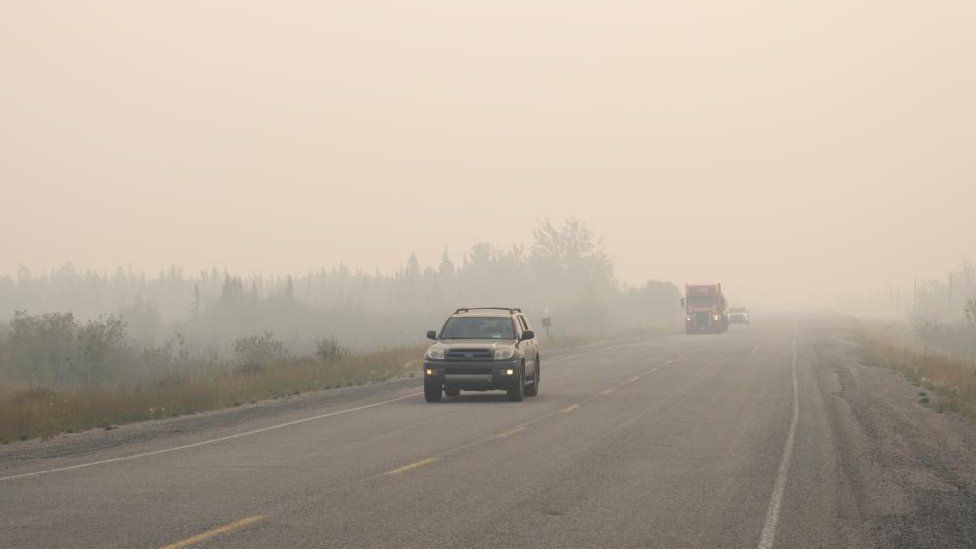
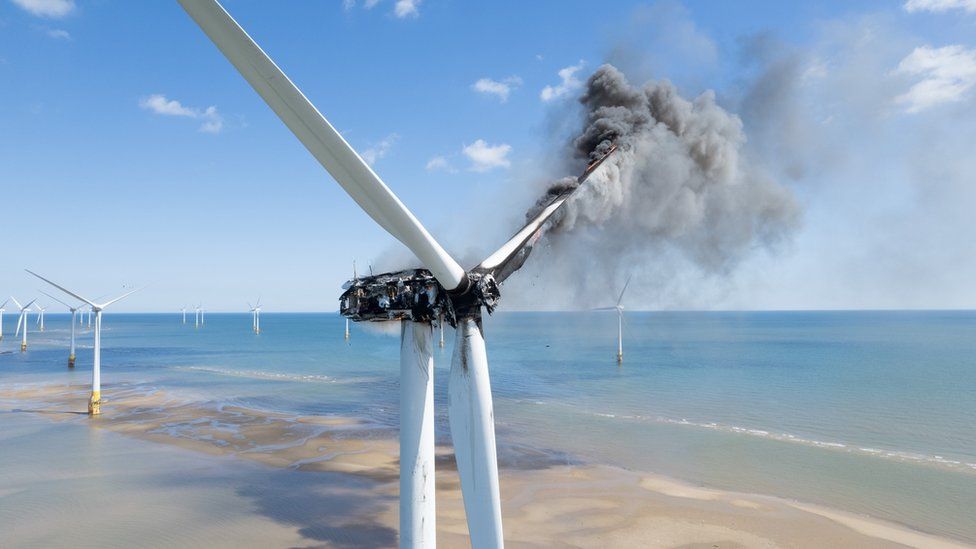

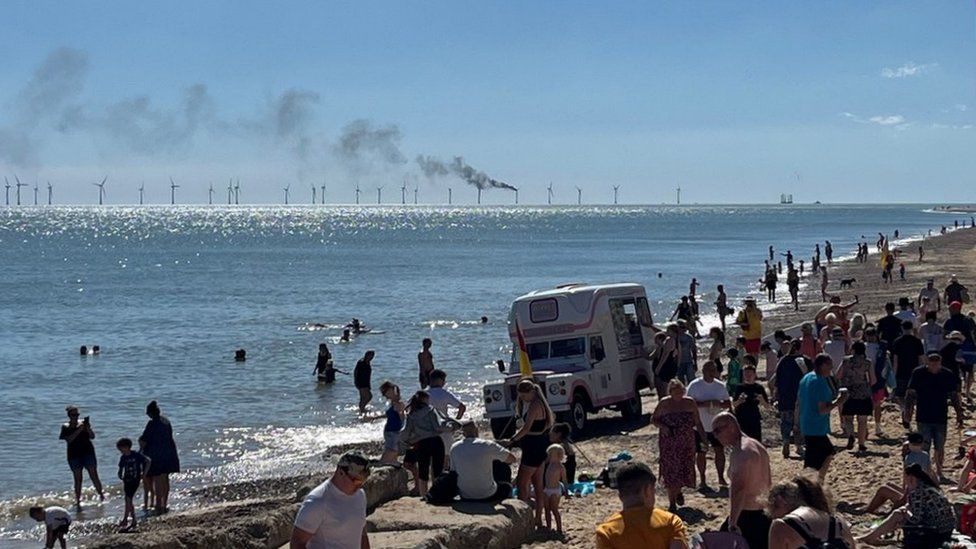
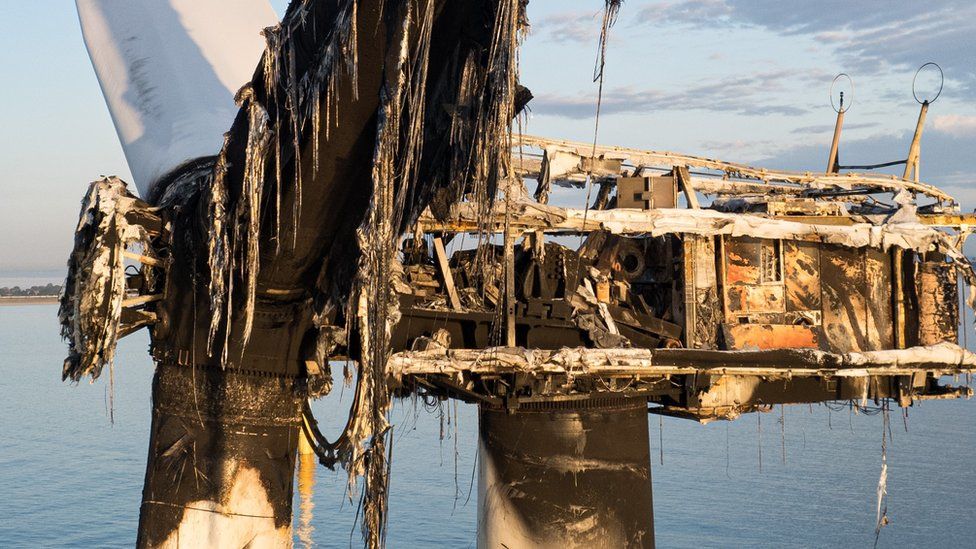 ,
,